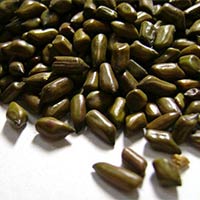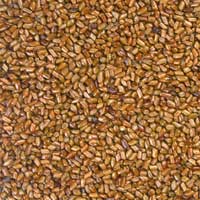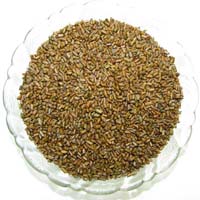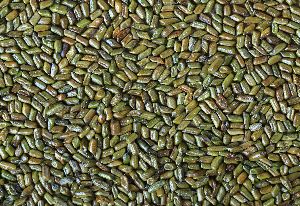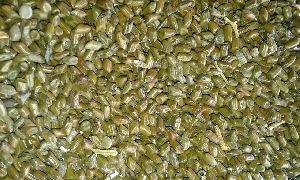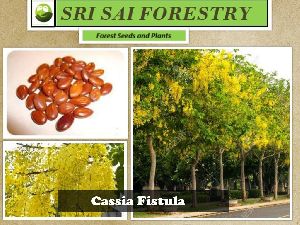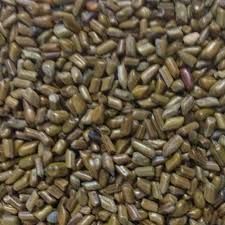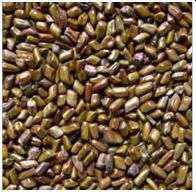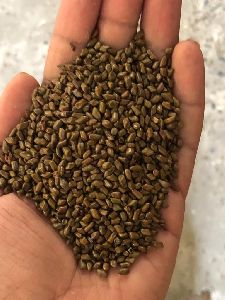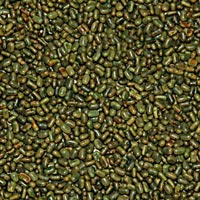Listing ID #1028722
Company Information
Ask for more detail from the seller
Contact SupplierThe seeds of the cassia plant (cassia tora seed) have great importance in ayurvedic medicines used in treatment of snakebites, as well as an eyesight booster. Treatment of skin diseases such as ringworms and antibacterial activity. The cassia tora seeds are also great laxatives, and effective anthelmintics as well as blocked chest relievers. The presence of anthroquinones in the leaves of the plant made it useful in management of teething in children, fever and reducing constipation. Get high quality cassia tora seeds from agro gums.
PROPERTIESSweet, bitter and salty in flavor, slightly cold in nature, it is related to the liver, kidney and large intestine channels.
USESThe parts like roots, seeds and leaves of this plant can be used in curing various health problems and diseases.
The root is used in snakebite.
The dried and fresh leaves are used in northern Nigeria in the treatment of ulcers, ring worm and other parasitic skin diseases. In cultures, the leaf extracts of the plant showed anti-bacterial activity. Antiviral activity, particularly against Newcastle disease virus and Vaccinia virus.
The Cassia Tora Seed, ripe seed of sickle pod, is a highly valued ancient Chinese herb. As defined in Ayurveda these seeds of Cassia Tora are great laxatives, ophthalmics, anthelmintics and expectorants. Its main constituents include derivatives of anthraquinone, chrysophanol, emodin, rhein and fixed oil. Due to the cold nature of the fruit from which they are extracted, the Cassia Tora seeds are the excellent sources for cooling down the body. Used as aperients and purgatives the seeds are help to loosen the bowels to relieve constipation.
Traditionally, the leaves of Chakvad are popular as potherb. It is used as a natural pesticide in the organic farms of India. It has been reported that Cassia tora contains chrysophanic acid-9-anthrone which is an important fungicide.
The intake of these seeds can cure skin diseases like ring worm, itch and psoriasis. These herbal seeds can also remove intense heat from the liver and improve the acuity of sight and loosen the bowels to relieve constipation.
The leaves contain anthroquinones, and are employed in weak decoction for treating childhood teething, fever and constipation.
The paste of the ground, dried root is used in Ayurveda as a treatment for ringworm and snakebite.
However when Cassia Tora is used together with self-heal Spica Prunellae and Cape jasmine fruit (Fructus Gardeniae) can be god remedy for conjunctivitis or inflammation of the conjunctiva, the mucous membrane that lines the inner surface of the eyelids and is continued over the forepart of the eyeball. This can even cure photophobia, or intolerance to light, due to fire of excess types in the liver channel. It is frequently used together with milk vetch seed or Semen Astragali Complanati for blurred vision due to yin deficiency of the liver and kidneys. The sickle senna seed decoction, syrup and tablets is most effective for hyperlipemia, the presence of excess fat or lipids in the blood.
The modern researches reveal that the fresh seed of this plant contains chrysophanol, obtusin, aurantio-obtusin and vitamin A. It contains anthra-glucoside which is known for its laxative effect. Cassia seed mixture with water can inhibit dermatomyces, while its alcohol infusion is known to inhibit the growth of harmful microorganisms like staphylococcus, bacillus diphtheriae, bacillus coli, typhoid and paratyphoid bacillus.
In addition to being used as medicinal herbs, the seeds are also used as a mordant in dyeing. They can be roasted and ground to be used as a coffee substitute. As the dehydrated seed of Cassia plant has good protein, it can be used as a full of protein feed for livestock and birds. Growing as leguminous in several parts of India, this is also used as fodder for animals and as a feed ingredient for carps.
Being so bitter and cold as to purge heat and so sweet and salty as to replenish yin (body fluids), this herb can not only clear and purge fire from the liver, but also nourish the liver and the kidneys. As the liver has its orifices open on the eyes and the pupils correspond to the kidneys, this herb is excellent for the improvement of eyesight and can be used for eye ailments of both the excess and deficiency types. It is often used together with self-heal spica (Spica Prunellae), cape jasmine fruit (Fructus Gardeniae), etc., for conjunctivitis (inflammation of the conjunctiva, the mucous membrane that lines the inner surface of the eyelids and is continued over the forepart of the eyeball) and photophobia, or intolerance to light, due to fire of excess types in the liver channel.
It is also often used together with chrysanthemum, mulberry leaves, etc., for headache with conjunctival congestion due to upward attacks of pathogenic wind-heat. It is frequently used together with milk vetch seed (Semen Astragali Complanati), etc., for blurred vision due to yin deficiency of the liver and kidneys.


